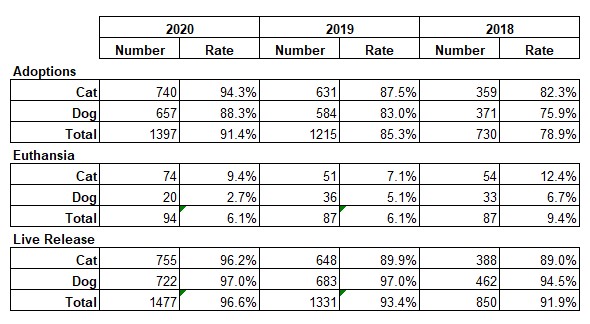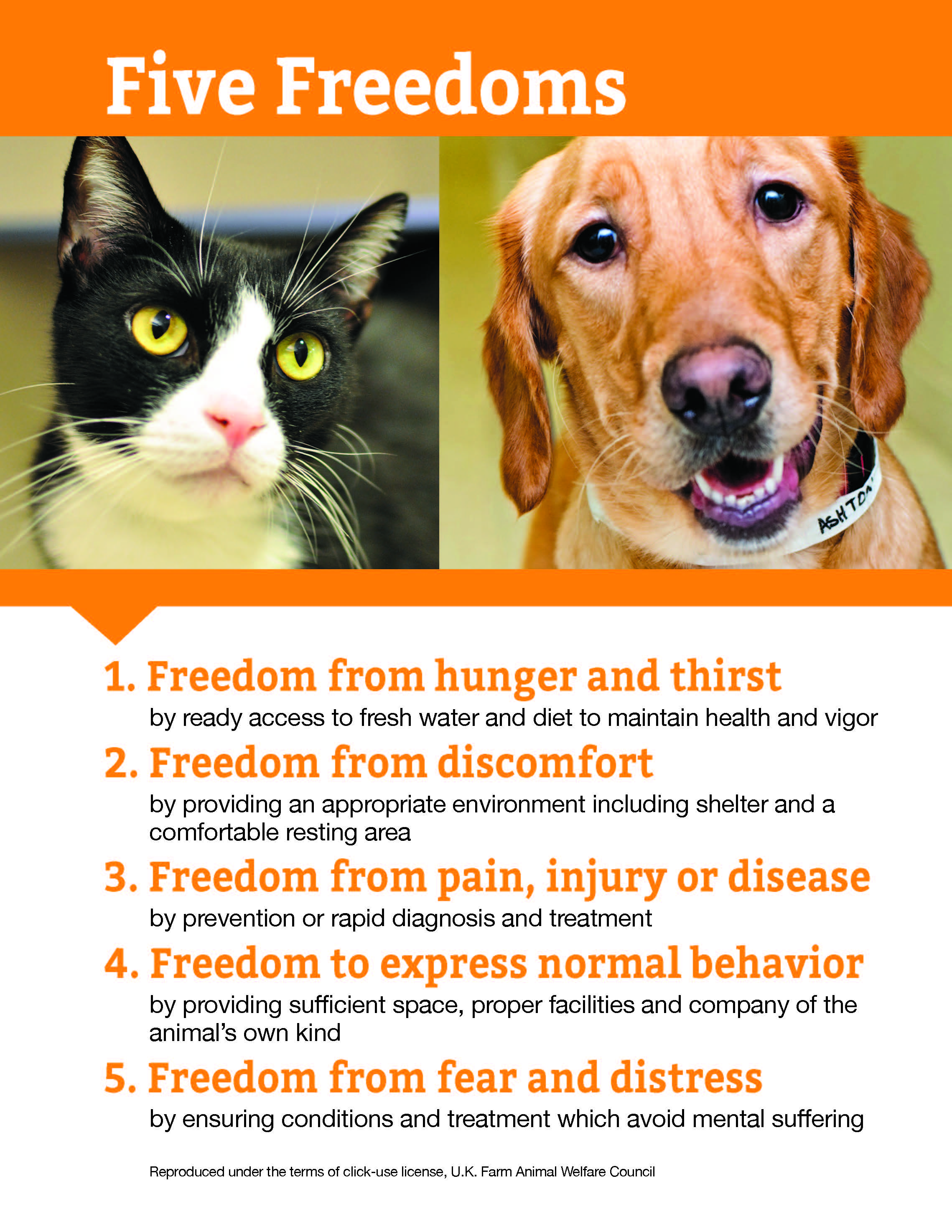Responsible Sheltering Policy
People often ask, “Are you a “no-kill” shelter?” At Hinsdale Humane Society, we firmly believe in the sanctity of life for every animal. We also respect that life should be free of fear, distress, and pain, and should not threaten the welfare of humans or other animals. This belief forms the basis for what we call “Responsible Sheltering.”
Under current industry practices, we are considered a “no-kill” shelter. We do not euthanize animals for length of stay or space needs. However, our Responsible Sheltering approach goes beyond these metrics, and is comprised of the following basic tenets:
- Physical Health
- Behavioral Health
- Long-term Animal Welfare
- Transparency
Each of these elements is further discussed below. However, to put them in context, consider that we receive animals from a variety of sources, including community strays, transfers from partner organizations, and owner surrenders, just to name a few. Many incoming animals have unknown backgrounds, but we firmly believe that our mission compels us to accept animals with difficult or unknown conditions, not just animals that are easily adopted. All beloved creatures deserve our time, our energy, our resources, and our compassion to help them find a forever home.
Responsible Sheltering
The basic elements of Responsible Sheltering are outlined below:
Physical Health – in cooperation with our veterinarians, each animal we receive is assessed for medical conditions that may affect their health and well-being. We make every effort to treat medical conditions of animals that come to us, so they can live pain-free lives. Our donors help us procure vaccinations, surgeries, and medicinal regimens to help save the animals in our care.
Behavioral Health – in addition to medical assessments, each animal we receive is rigorously assessed for behavioral conditions that may adversely affect their ability to live safely with others and avoid mental distress. When conditions are identified, such as aggression or anxiety, our staff works with the animals to try to address the issues, sometimes in cooperation with volunteers, foster homes and partner organizations.
Long-term animal welfare – We work very hard to find the right home for each animal in our care. Not every animal is a fit for every home, due to behaviors, medical conditions, or other reasons. The right “match” of animal and adopter leads to a mutually beneficial, long-term relationship.
Transparency – Euthanizing an animal in our care is a very difficult decision, and not one we take lightly. However, despite our best efforts, it is sometimes necessary for the benefit of the animal or for our communities. National shelter data is available here. Our own personal data is in the chart below. Please note: variance in 2020 numbers is a result of a fiscal year change with an added 3 months.

Our Responsible Sheltering approach is consistent with the ASPCA “Five Freedoms”. It is also consistent with nationally established ASILOMAR guidelines.
What does it all mean?
Shelters and rescue groups exist because they want to help animals – to reduce their suffering, provide for their safety, and allow them to lead a fulfilling life with humans and other animals around them. No reputable animal welfare organization would ever choose to “kill” an animal. However, if we limited our intake to animals with no health or behavioral concerns, thousands of animals would remain at risk in our communities. We choose to act, take a chance, and save lives.

